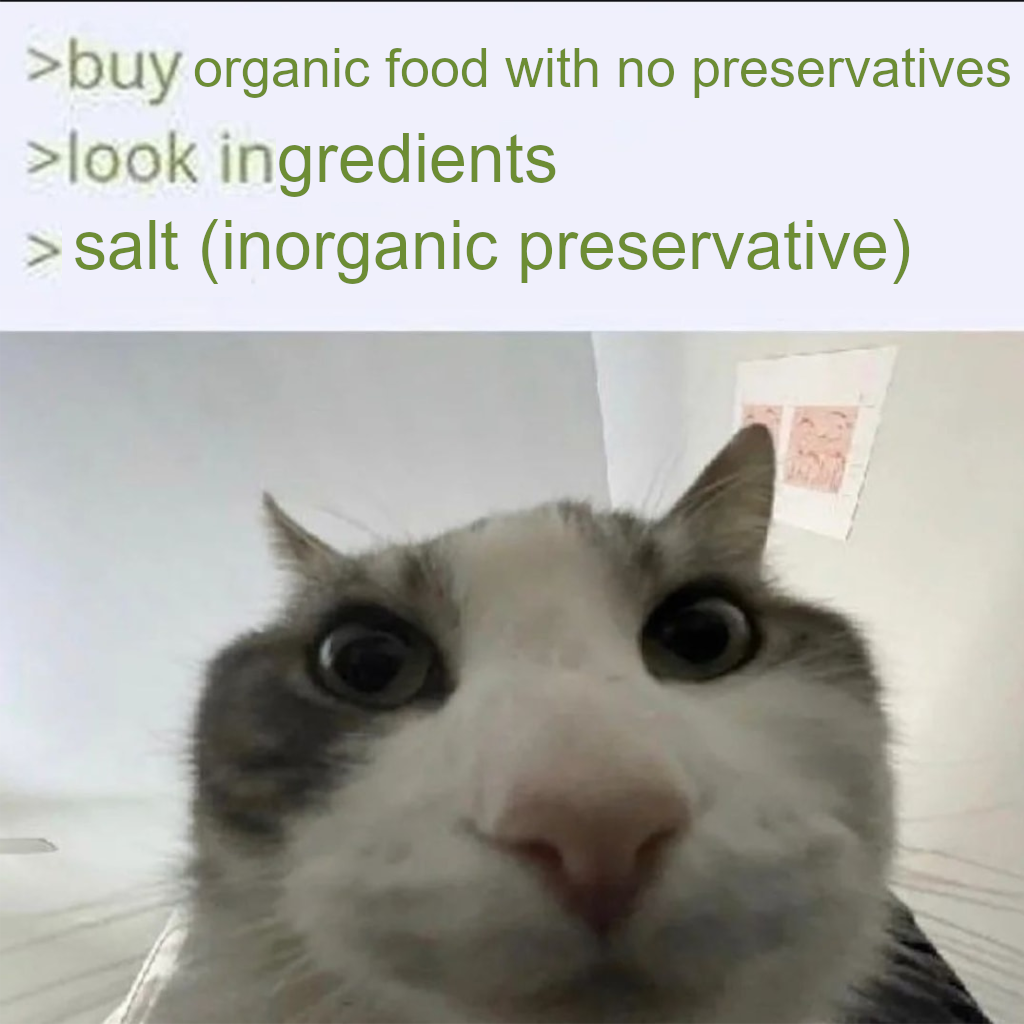this post was submitted on 26 Dec 2023
386 points (100.0% liked)
Memes
1357 readers
13 users here now
Rules:
- Be civil and nice.
- Try not to excessively repost, as a rule of thumb, wait at least 2 months to do it if you have to.
founded 5 years ago
MODERATORS
you are viewing a single comment's thread
view the rest of the comments
view the rest of the comments

Stupid question, what's wrong with organic?
It's a bullshit marketing term to appeal to pseudoscience and anti-intellectuals.
It's a heavily abused and arbitrary marketing term that doesn't actually indicate anything about what the food is made of or how it's made or grown. It also doesn't indicate anything about how healthy the food is or how good it tastes. At most it's slightly better for the environment in some areas with some brands when used properly, but even then regulations are too lax and inconsistent worldwide for it to be a trustworthy label.
Wasn't aware there's anything wrong. Albeit more expensive, I prefer to not eat pesticides. 🤷♂️
https://wqscert.com/usda-organic
Granted, I'm not sure there are long-term medical studies proving any harmful effect of doing so.
Organic foods can and usually do have pesticides, and those pesticides are just as harmful to you as the artificial ones. For instance, Rotenone was an organic pesticide used for decades that is strongly linked to parkinsons and has since been banned in North America.
Also quantity, most "organic" pesticides are significantly less effective and so it requires more applications of more product in order to get the same effect. Eating "organic" likely exposed you to more pesticides than the alternative.
It's code for "same shit but more expensive" As with all the labels, the intent is to shark people's ignorance with meaningless buzzwords.
Depends on where you live. As far as I know the term is not well protected in many countries, so it means next to nothing there.
However, I live in the EU / Germany, where we have several organic farming standards that are all fairly strict. Generally, organic actually means organically produced food here, grown without artificial pesticides, chemical fertilizers, and so on.
It's more expensive, and it's typically not that much better than inorganic.